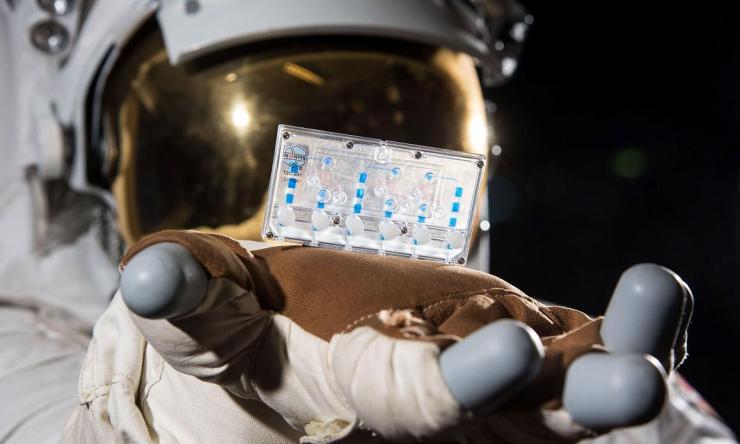TRISH seeks innovative biomarker analysis technologies for deep space missions
The Translational Research Institute for Space Health (TRISH) at Baylor College of Medicine’s Center for Space Medicine, with consortium partners California Institute of Technology and Massachusetts Institute of Technology, is seeking proposals to advance remote biomarker analysis capabilities in microphysiological systems (MPS), also known as tissue chips, for space exploration.
This solicitation seeks innovative solutions to improve in-situ measurement technologies for use during future deep space missions, where traditional sample return to Earth may not be feasible.
"Advancing remote biomarker analysis is essential for supporting astronaut health on deep space missions," said Dr. Rihana Bokhari, TRISH acting chief scientific officer and assistant professor at Baylor. "Traveling beyond low Earth orbit (LEO) will expose astronauts to different radiation than on the International Space Station.
These tools will give us a chance to better understand the biological effects of the spaceflight environment beyond LEO before we send humans on longer missions to the moon and beyond.”
This solicitation falls under the Institute’s SENTINEL (Science ENterprise to INform Exploration Limits) program. By advancing the MPS platform, TRISH aims for a new way to gather personalized astronaut data without needing a human to tend the samples.
Proposals for this solicitation will focus on technologies capable of analyzing a wide range of biomarkers, bioindicators or biosignatures without requiring sample return. TRISH is prioritizing methods that are non-invasive, that do not destroy the sample, and that allow for data collection over multiple timepoints separated by days or weeks. Such systems should be adaptable and not restricted to specific laboratory setups. In addition to biomarkers, proposers may address environmental factors, cell function and tissue health in advanced biological constructs.
The solicitation is available on TRISH’s GRID submission site here. The deadline to submit is March 6, 2025, at 11:59 p.m. ET. A pre-proposal webinar will be held on Jan. 13 at 2 p.m. ET for prospective proposers. Register for the pre-proposal webinar here.
Empowered by the NASA Human Research Program, TRISH drives disruptive and breakthrough research to help solve the health challenges of deep space exploration. The Institute is funded through a cooperative agreement with NASA to Baylor College of Medicine and includes consortium partners Caltech and MIT.








 Credit
Credit


